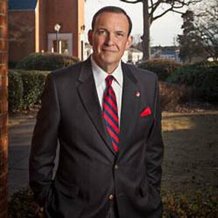Now when they had departed, behold, an angel of the Lord appeared to Joseph in a dream and said, “Rise, take the child and his mother, and flee to Egypt, and remain there until I tell you, for Herod is about to search for the child, to destroy him.” And he rose and took the child and his mother by night and departed to Egypt and remained there until the death of Herod. This was to fulfill what the Lord had spoken by the prophet, “Out of Egypt I called my son.”
Then Herod, when he saw that he had been tricked by the wise men, became furious, and he sent and killed all the male children in Bethlehem and in all that region who were two years old or under, according to the time that he had ascertained from the wise men. Then was fulfilled what was spoken by the prophet Jeremiah:
“A voice was heard in Ramah,
weeping and loud lamentation,
Rachel weeping for her children;
she refused to be comforted,
because they are no more.”
Matthew 2:13-18
Then Herod, when he saw that he had been tricked by the wise men, became furious, and he sent and killed all the male children in Bethlehem and in all that region who were two years old or under, according to the time that he had ascertained from the wise men. Then was fulfilled what was spoken by the prophet Jeremiah:
“A voice was heard in Ramah,
weeping and loud lamentation,
Rachel weeping for her children;
she refused to be comforted,
because they are no more.”
Matthew 2:13-18
Dear Friends,
These verses from the second chapter of Matthew’s gospel remind us that following His birth, the earliest months of Christ’s life were set against a backdrop of terrible evil and profound darkness. The celebratory hymn of the angels (in Luke 2:14) was followed by the sound of weeping and loud lamentation as Herod, in his twisted attempt to destroy the Messiah, ordered the murder of every male child under two years of age in Bethlehem.
As we remember and rejoice in the coming of our Saviour 2,000 years ago, let us not lose sight of the fact that the world is not any less dark now than it was then. We may not live in the wake of Herod’s violence, but the actions of civil governments continue to demonstrate the same contempt for what God has ordained – particularly when it comes to the sanctity of human life and His created order.
It is astonishing that just three days before Christmas, the Scottish Government has just this week secured parliamentary support for its Gender Recognition Reform Bill. The age requirement for those wishing to legally change their gender has been lowered from 18 to 16, there is no longer any requirement to secure a medical professional’s diagnosis of gender dysphoria and the period of time a person is required to live in their ‘acquired gender’ has been reduced from two years to three months (six months for those under 18s). Not only does this immoral and irresponsible legislation have the potential to place true women and girls in danger, it will cause untold damage to many teenagers at a time in their lives when they already face many pressures and experience much confusion.
Meanwhile, Liam Macarthur MSP’s Assisted Dying for Terminally Ill Adults (Scotland) Bill is due to be introduced to the Scottish Parliament in early 2023, which if successful, will make assisted suicide (a form of euthanasia) legal in Scotland. Where similar legislation has been passed in other countries (for example, Canada), previously agreed safeguards are already being disregarded by some Doctors who are proposing assisted suicide to patients who are not terminally ill and the list of those who are eligible is likely to be widened next year to include even those with mental health issues.
While on the subject of the sanctity and preservation of human life, I would direct you to a recent speech given by Andrew Bridgen MP in the House of Commons and to the call from UK Doctors for a Government investigation. I realise that to question either the efficacy or safety of Covid-19 “vaccines” is, in the eyes of many, to tread on sacred ground. However, as one who continues to have concerns about the mRNA experimental gene therapy injections (as I highlighted in a letter in September 2021 and to our denomination’s Covid-19 committee the same year), I could not in good conscience fail to alert you to these developments. I don’t know what is more alarming, the fact that there have been thousands of serious Covid-19 vaccine-related adverse events and deaths reported in official national databases, or the apparent unwillingness of health bodies and governments of the world to take any notice.
Whatever may be the reason for this, and whatever people’s motives might be for such sinister policies as the Gender Recognition Act and Assisted Dying for Terminally Ill Adults (Scotland) Bill, the fact remains that we are living at a time when the sacredness of human life is disregarded and the most basic foundations of a God-honouring society are being systematically overturned and destroyed.
Scripture tells us that whereas Christ came into that world to give life in all its abundance Satan exists to kill and destroy (John 10:10). Our battle then, is not ultimately with flesh and blood, but with the spiritual forces of evil in the heavenly places.
With this in mind, I am convinced that we must truly give ourselves to prayer. In particular, we must pray that:
As we enter into the spiritual battlefield of 2023, we would do well to remember that while Herod did his worst in the early years of Christ’s life, he did not ultimately succeed in thwarting the redemptive purposes of God. When Jesus said, “I will build my church and the gates of hell shall not prevail against it” He meant what He said. But as we play our own small part in that work, we must not lose sight of the fact that we do so in a world where many operate according to the same devilishness as King Herod. Let us not therefore neglect our God-given responsibility - individually, locally and as a denomination – to pray hard and to contend for the faith once for all delivered to the saints.
May God have mercy on our land, grant repentance and revival to His bride, and may each of you know the blessing and peace of the True King, our Lord Jesus Christ, in all the days to come.
With love from your pastor and friend, in Him,
Paul Gibson.
These verses from the second chapter of Matthew’s gospel remind us that following His birth, the earliest months of Christ’s life were set against a backdrop of terrible evil and profound darkness. The celebratory hymn of the angels (in Luke 2:14) was followed by the sound of weeping and loud lamentation as Herod, in his twisted attempt to destroy the Messiah, ordered the murder of every male child under two years of age in Bethlehem.
As we remember and rejoice in the coming of our Saviour 2,000 years ago, let us not lose sight of the fact that the world is not any less dark now than it was then. We may not live in the wake of Herod’s violence, but the actions of civil governments continue to demonstrate the same contempt for what God has ordained – particularly when it comes to the sanctity of human life and His created order.
It is astonishing that just three days before Christmas, the Scottish Government has just this week secured parliamentary support for its Gender Recognition Reform Bill. The age requirement for those wishing to legally change their gender has been lowered from 18 to 16, there is no longer any requirement to secure a medical professional’s diagnosis of gender dysphoria and the period of time a person is required to live in their ‘acquired gender’ has been reduced from two years to three months (six months for those under 18s). Not only does this immoral and irresponsible legislation have the potential to place true women and girls in danger, it will cause untold damage to many teenagers at a time in their lives when they already face many pressures and experience much confusion.
Meanwhile, Liam Macarthur MSP’s Assisted Dying for Terminally Ill Adults (Scotland) Bill is due to be introduced to the Scottish Parliament in early 2023, which if successful, will make assisted suicide (a form of euthanasia) legal in Scotland. Where similar legislation has been passed in other countries (for example, Canada), previously agreed safeguards are already being disregarded by some Doctors who are proposing assisted suicide to patients who are not terminally ill and the list of those who are eligible is likely to be widened next year to include even those with mental health issues.
While on the subject of the sanctity and preservation of human life, I would direct you to a recent speech given by Andrew Bridgen MP in the House of Commons and to the call from UK Doctors for a Government investigation. I realise that to question either the efficacy or safety of Covid-19 “vaccines” is, in the eyes of many, to tread on sacred ground. However, as one who continues to have concerns about the mRNA experimental gene therapy injections (as I highlighted in a letter in September 2021 and to our denomination’s Covid-19 committee the same year), I could not in good conscience fail to alert you to these developments. I don’t know what is more alarming, the fact that there have been thousands of serious Covid-19 vaccine-related adverse events and deaths reported in official national databases, or the apparent unwillingness of health bodies and governments of the world to take any notice.
Whatever may be the reason for this, and whatever people’s motives might be for such sinister policies as the Gender Recognition Act and Assisted Dying for Terminally Ill Adults (Scotland) Bill, the fact remains that we are living at a time when the sacredness of human life is disregarded and the most basic foundations of a God-honouring society are being systematically overturned and destroyed.
Scripture tells us that whereas Christ came into that world to give life in all its abundance Satan exists to kill and destroy (John 10:10). Our battle then, is not ultimately with flesh and blood, but with the spiritual forces of evil in the heavenly places.
With this in mind, I am convinced that we must truly give ourselves to prayer. In particular, we must pray that:
- The bride of Christ would take up the whole armour of God, that she might be able to withstand in the evil day, and having done all to stand firm (Eph. 6).
- Those responsible for such destructive evils of our day would be brought to repentance, silenced or removed (Dan. 4:31-32).
- Those seeking to identify as a gender other than the one given to them by God would be delivered from a corrupted mind (Rom. 1:28) and find salvation in Christ.
- The church would recover her prophetic voice to the world and not be guilty of giving an indistinct sound (1 Cor. 14:8; Isaiah 1:17; Prov. 31:8-9). See our friend David Robertson’s recent blog post, for example.
As we enter into the spiritual battlefield of 2023, we would do well to remember that while Herod did his worst in the early years of Christ’s life, he did not ultimately succeed in thwarting the redemptive purposes of God. When Jesus said, “I will build my church and the gates of hell shall not prevail against it” He meant what He said. But as we play our own small part in that work, we must not lose sight of the fact that we do so in a world where many operate according to the same devilishness as King Herod. Let us not therefore neglect our God-given responsibility - individually, locally and as a denomination – to pray hard and to contend for the faith once for all delivered to the saints.
May God have mercy on our land, grant repentance and revival to His bride, and may each of you know the blessing and peace of the True King, our Lord Jesus Christ, in all the days to come.
With love from your pastor and friend, in Him,
Paul Gibson.










